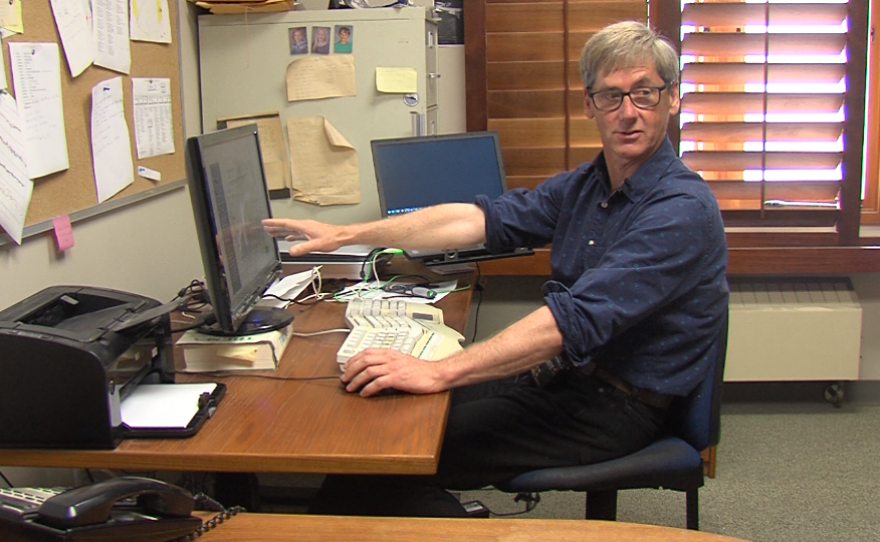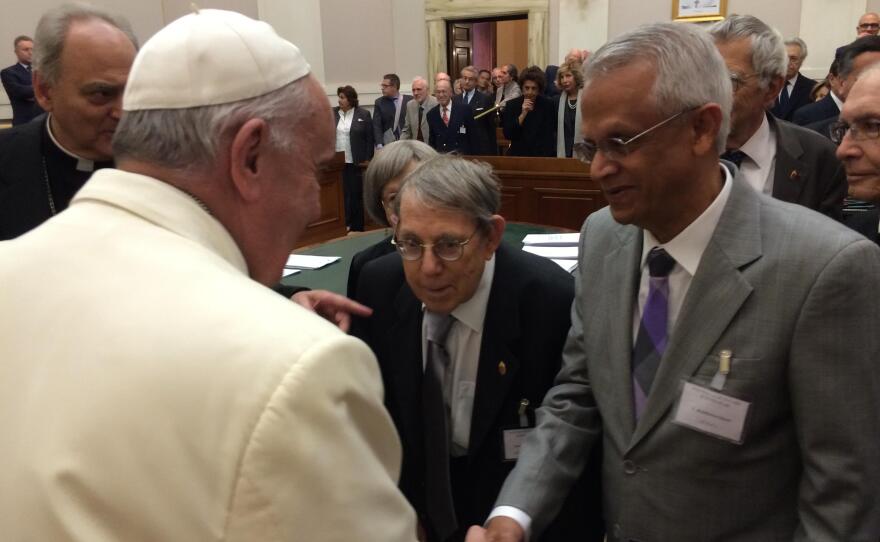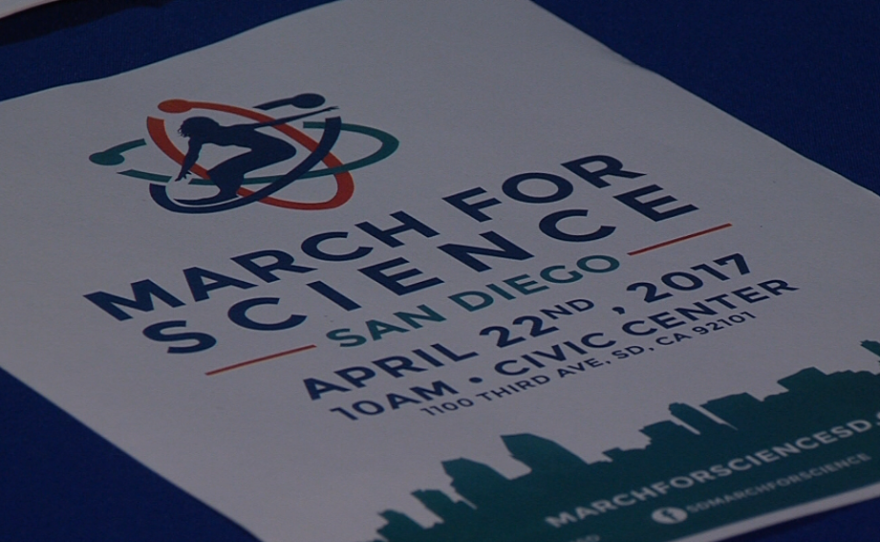Many science advocates will be celebrating this Earth Day at a march. The March for Science — happening in Washington, D.C. this Saturday, with satellite marches around the world, including in San Diego — will bring together people who think science needs a mass demonstration of support in today's political climate.
As of Thursday afternoon, close to 10,000 Facebook users have expressed interest in attending San Diego's March for Science. And many local scientists are pledging their support. But some say the march, while well-intentioned, could backfire politically.
It is all enthusiasm on a recent weeknight, after hours at the Fleet Science Center in Balboa Park. The museum is closed, but one room remains open for organizers of the San Diego march. They are handing out T-shirts and assigning jobs to volunteers like Peter Ramirez.
Ramirez, a third-generation Mexican-American, said, "I'm the first in my family to go to graduate school, and I'm the first in my family to actually go the full way to get a doctorate."
Ramirez, now a postdoc studying infectious disease at UC San Diego, said he is participating in the march to promote solidarity between people who are involved in science for a living and those who aren't.
"I just feel that it's really important for me to be a voice to kind of speak out to those people who are scientists," he said. "But not only that, but to my fellow people who are not scientists — and that's most of my family."
The organizers want the San Diego March for Science to be a nonpartisan demonstration. It is a march on behalf of science, they stress, not a march for liberals or against conservatives. But lead organizer Melissa Slawson, who works as a lawyer, admits that plans were set in motion by one particular political event.
"Had things been different in November, most likely marches like this probably wouldn't be organized right now," Slawson said. "If Hillary had won.”

The election of Donald Trump distressed many scientists. This is a president who has called climate change a Chinese hoax, linked vaccines with autism and pushed for deep cuts to federal science funding. For many, Trump embodies the anti-science sentiment polluting today’s politics.
The election may be what is pushing many to show up, but Slawson says the march is not about driving people further apart.
"It's very important for us that all of our outward messaging for this march is of a nonpartisan nature, because science in and of itself is nonpartisan," Slawson said.
The March for Science was inspired by the success of the Women's March, held just after Trump’s inauguration. In San Diego, marchers will be literally following in the footsteps of the Women’s March. The event will also begin at Civic Center Plaza and end at Waterfront Park. At both ends, speakers will talk about why they are standing up for science.
One of the speakers will be Ralph Keeling, a climate scientist at the Scripps Institution of Oceanography. He maintains the Keeling Curve, a record started by his father in the 1950s to plot carbon dioxide concentration in the Earth’s atmosphere over time.
"It shows this relentless rise," Keeling said. "And there's no doubt that that rise is driven mostly by fossil fuel burning. So it's kind of the smoking gun for a human imprint on the whole planet."
Keeling said one of the reasons he is marching is to preserve science as a viable career path for young people.
"Federal funding of science has had a huge impact on where this country stands in terms of prosperity and opportunity and our position in the world," Keeling said. "That's been true for the last century, and we hope it will continue to be true in the future."

Many scientists will join Keeling in the march, but some — like Keeling's fellow Scripps climate scientist Ram Ramanathan — will stay home.
Ramanathan is sympathetic to the aims of the march, saying, "I think scientists are lost now. Where do we fit in?" But he worries the public demonstration could alienate those who already perceive scientists as politically biased.
Lately, Ramanathan has been focused on outreach, trying to convince political and religious leaders about the seriousness of climate change.
He said his efforts with the Obama administration and the Pope have been paying off, resulting in international agreements to crack down on hydrofluorocarbons and a Vatican that puts climate change high on its agenda.

Ramanathan wants not only liberals, but also conservatives to see him as a neutral expert who can explain climate science without any political agenda.
"If I participate in the March for Science, I'm concerned I would lose that neutral voice. Even if I remain neutral, the perception would be that I'm a biased activist," he said.
San Diego march organizer Melissa Slawson says it will be a tricky balancing act, keeping the march nonpartisan while also seizing on the momentum created by the Women’s March.
"It is a tough act to follow," Slawson said. "And we're definitely not trying to follow them in that sense. We are a different march, though I think some of the sentiment is the same."






